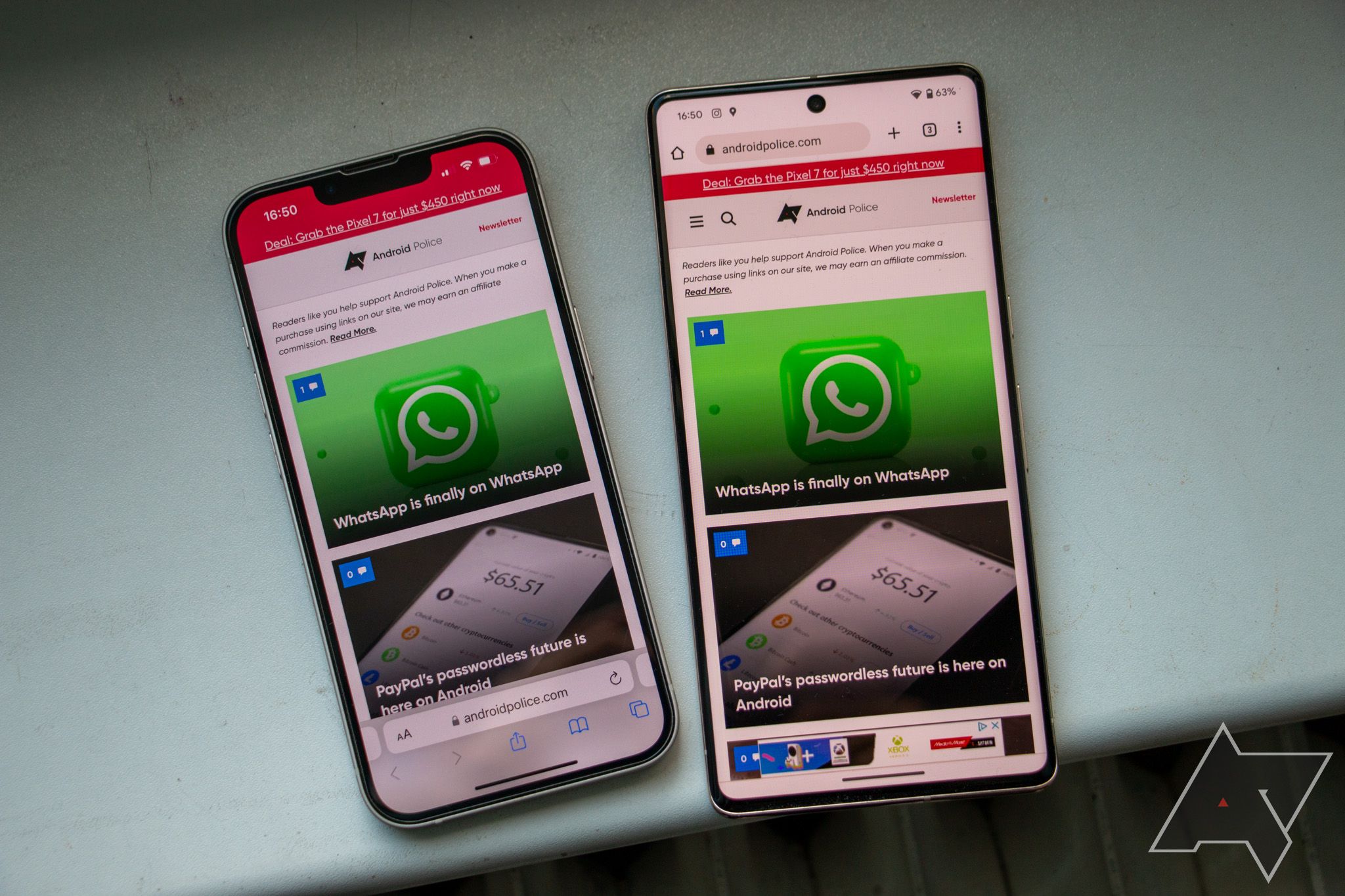Summary
- Apple is finally allowing iPhone users in the European Union to easily download and install third-party app stores, bringing the experience closer to the openness of Android.
- iOS users will also have access to alternative browser engines, potentially improving the browsing experience on Apple devices.
- Developers can now use third-party payment systems for in-app purchases without incurring a fee from Apple, giving them more flexibility and choice.
If openness is a priority, Android has always been the better option when compared to iOS. Aside from aesthetic differences like the ability to apply icon packs or change your home screen app, the biggest factor here has been that Android allows sideloading third-party apps with minimal effort, while iPhones have always required you to jump through hoops to install apps from outside the App Store. That is finally changing soon — at least for iPhone users in the European Union.
On Android, you can easily download an installer file from websites like APKMirror, open it, and enable a toggle when prompted, then the app will be installed on your phone just like it came from the Google Play Store. The situation on iOS has traditionally been a lot more complicated, at times requiring you to use exploit-based tools like Cydia Impactor, sign the installer file yourself, and/or dig deep in Settings to trust the developer every couple of weeks.
After the EU passed its Digital Markets Act (DMA) and defined companies, including Apple and Google, as gatekeepers, we knew a change was coming ahead of the March 2024 deadline outlined by the act. We had seen Google’s plan for making Android’s app store situation more open, as well as its new onboarding flow for keeping your data separated between its services. Today, Apple has announced its plans for bringing the App Store into compliance (via The Verge).

Here’s how Google will comply with the DMA when it goes into effect in March
The EU is forcing Google to unlink its services if you want it to
Starting with the release of iOS 17.4 in March, iPhone users in the European Union will be able to download and install third-party app stores from the marketplace’s website. Apple will be providing new APIs for the developers of these marketplaces to ensure that they’re able to install other apps. To help improve security, Apple has created a new Notarization process for iOS apps — all apps, regardless of source, will have to be screened for Notarization before they can be installed on an iPhone. The company will also be implementing additional malware protection for screening these apps.
A major tenet of the DMA is to provide alternative billing options for developers of apps and app stores, and Apple will make changes to assuage these concerns as well. Developers will now have the option to use a third-party payment system for in-app purchases without incurring a fee from Apple. Alternatively, they can use the App Store’s payment processing system for an additional 3 percent fee.

What Chrome for Android needs to learn from Safari
Apple’s iOS browser does some things better than Chrome for Android
Another major change that might interest Android users is that Apple is opening access to alternative browser engines. Currently, third-party browsers like Chrome and Firefox still have to use Apple’s WebKit for rendering, essentially making them wrappers on top of Safari. With the passage of the DMA, developers like Google and Mozilla will be able to use their own rendering engines, perhaps putting their browsers on par with the experience offered on Android.
With these changes, Apple has further closed the gap with Android in terms of openness. The company has also announced plans to support RCS messaging in iOS 18 later this year, making the green vs. blue bubble iMessage controversy significantly less burdensome. With so many hurdles being removed, the act of switching from Android to iOS should be a lot simpler in 2024.
Source link

